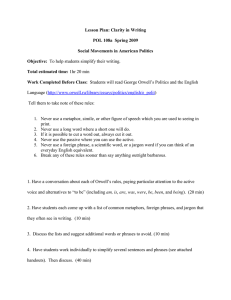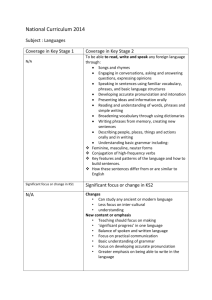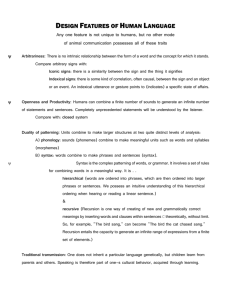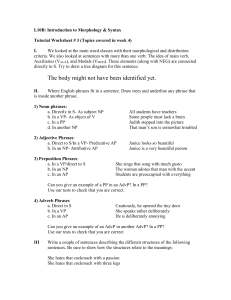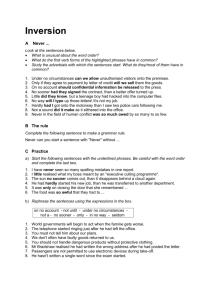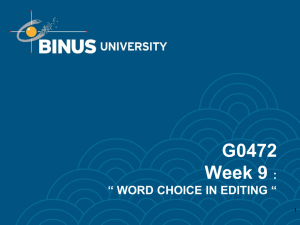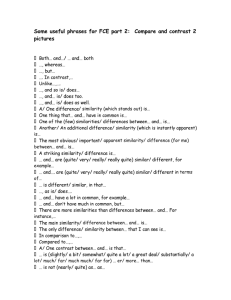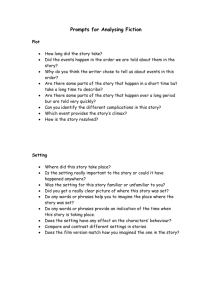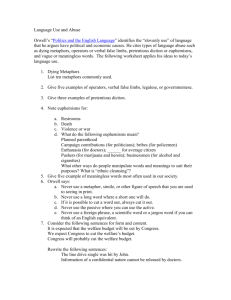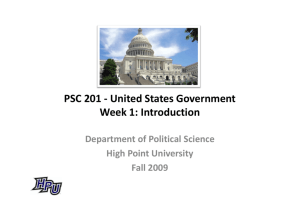Lesson Plan: Clarity in Writing
advertisement
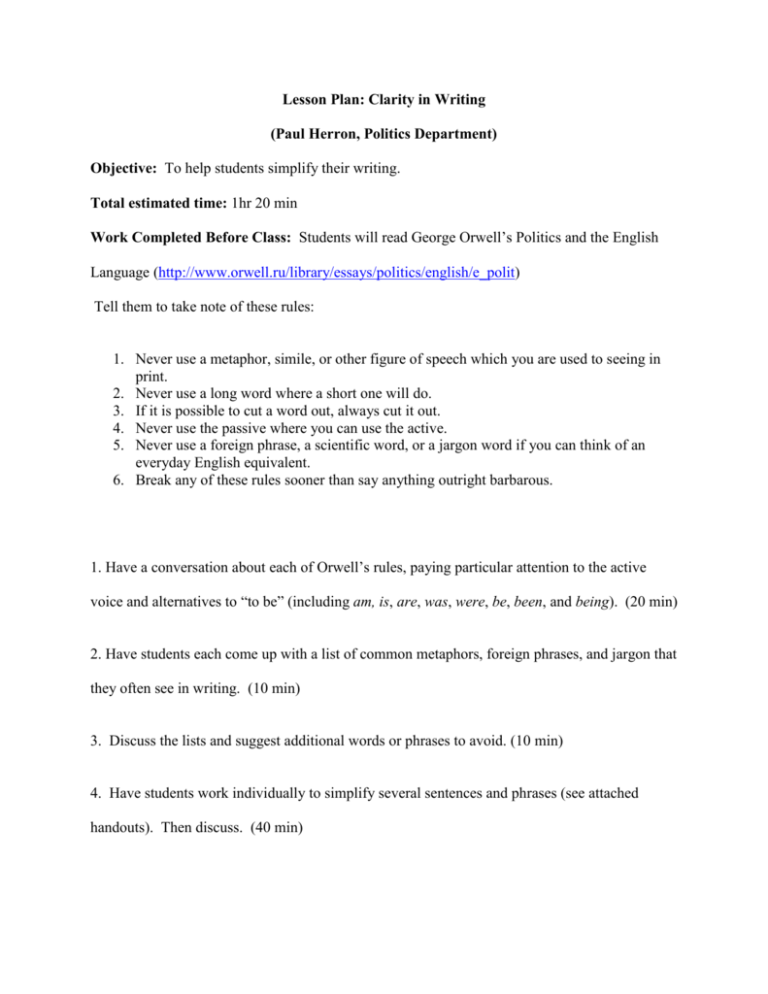
Lesson Plan: Clarity in Writing (Paul Herron, Politics Department) Objective: To help students simplify their writing. Total estimated time: 1hr 20 min Work Completed Before Class: Students will read George Orwell’s Politics and the English Language (http://www.orwell.ru/library/essays/politics/english/e_polit) Tell them to take note of these rules: 1. Never use a metaphor, simile, or other figure of speech which you are used to seeing in print. 2. Never use a long word where a short one will do. 3. If it is possible to cut a word out, always cut it out. 4. Never use the passive where you can use the active. 5. Never use a foreign phrase, a scientific word, or a jargon word if you can think of an everyday English equivalent. 6. Break any of these rules sooner than say anything outright barbarous. 1. Have a conversation about each of Orwell’s rules, paying particular attention to the active voice and alternatives to “to be” (including am, is, are, was, were, be, been, and being). (20 min) 2. Have students each come up with a list of common metaphors, foreign phrases, and jargon that they often see in writing. (10 min) 3. Discuss the lists and suggest additional words or phrases to avoid. (10 min) 4. Have students work individually to simplify several sentences and phrases (see attached handouts). Then discuss. (40 min) Clarity & Clutter Exercise Clarity/Conciseness: Revise the following sentences to remove clutter, eliminate wordiness, and clarify meaning (credits to Zinsser). (1) The bricks on our new house are red in color and in spite of the fact that they are new, the look of these bricks is a used, beat-up appearance. (2) Due to the fact that he hadn’t totally and completely read all the material, he lacked in the ability to do the writing for the purpose of the class exercise. (3) America has two main kinds of business. Americans need to pay attention to getting justice for all, and they also need to be sure that everyone is treated alike. (4) It is interesting to note that numerous individuals required assistance, whereas, the remainder took a pass. (5) I was not facilitated in reading her comments she had written in my paper because of the handwriting that was illegible and therefore could not be read. (6) Our skating coach made the recommendation saying that my pairs partner and I should put more time into our practicing. Exactness: See if you can make the following phrases more succinct (one or two word answers are possible for each): (1) In this day and age. (2) Has the ability to sing. (3) Was of the opinion that. (4) In a serious manner. (5) Prior to the time that. (6) Did put in an appearance. (7) Located in the vicinity of. (8) Has a tendency to break. (9) During the same time that. (10) Involving too much expense. Wordiness: Rewrite these sentences to make them clearer: (1) Expert delineation of the characters in a work act of fiction is a task that is difficult to facilitate. (2) In an employment situation, social pleasantries may contribute to the successful functioning of job tasks, but such interactions should not distract attention from the need to complete all assignments in a timely manner. (3) Commitment to an ongoing and carefully programmed schedule of physical selfmanagement can be a significant resource for stress reduction. (4) Mechanical professionals in the automotive industry have been known to recommend regular monitoring of fluids necessary for internal combustion vehicles and increasing the allocation of such fluids when necessary. (5) Students troubled by dysfunctions in interpersonal relationships can receive support from information specialists in the counseling division of health services.
